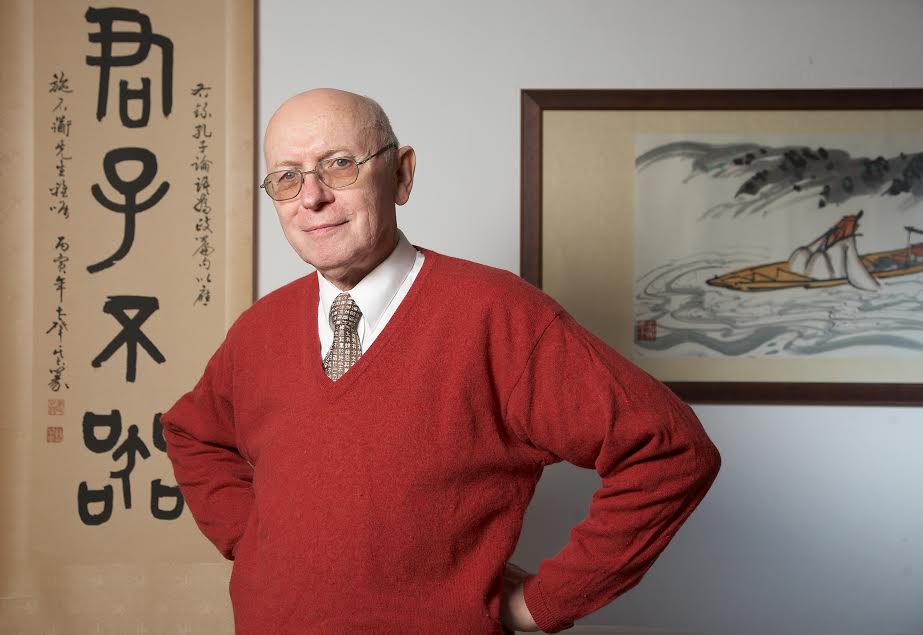Since the division of the Korean state after Second World War, there have been tensions between the Democratic People's Republic of Korea and the Republic of Korea. In recent months, we have witnessed a warming of relations between Seoul and Pyongyang, but this does not mean a full stabilization in the region.
HE Sung-joo Choi, Ambassador of the Republic of Korea in Poland, will present the complex situation on the Korean Peninsula.
October 25
18:00-20:00
Warsaw
At the very end of the Word War II, in August 1945, the Soviet and the American forces liberated Korea from the Japanese occupation. They have agreed upon that their dividing line will be 38th parallel. In December 1945 during Moscow Conference the Soviet Union and the USA declared that one democratic government should be elected there. Unfortunately, the cold war resulted in 1948 in the formation of the two governments: one pro-Soviet at the North, and another pro-American at the South. On June 25th, 1950 the North Korean army invaded the South. In this way Korean War had been initiated. The North received support of China and of the Soviet Union, whereas the South received the UN help, with American Army as the most significant force. The armistice was signed in July 1953, after the death of Stalin.
Since the armistice both states developed in different directions, but on the two sides of the Demilitarized Zone there are two giant armies ready to fight, and many government consider the North as a threat for peace in East Asia. The South achieved almost miraculous industrial development, whereas the communist North remains rather backward, although it developed nuclear bombs and intercontinental missiles. Numerous attempts to normalize inter-Korean relations did not produce lasting results. One of the significant achievements constitutes an admission of the two Korean states to the United Nations (1991). Many times it appeared that another war could outbreak there again.
In 2018 Mr. Moon Jae-in, President of the Republic of Korea, started a new period of peace efforts. His meetings with the communist leader Kim Jong-un in April and May 2018 opened a way to the meeting of Kim and President Donald Trump in Singapore (June 12). In September two Korean leaders met again, and at the beginning of October Mr. Mike Pompeo, American Secretary of State concluded his fourth visit to Pyongyang. And it was announced that the second summit Trump-Kim is under preparations.
Numerous politicians and intellectuals look for these developments with a surprise and with hopes for a success.
The complex situation on the Korean Peninsula and the policy of the Republic of Korea will present HE Sung-joo Choi, Ambassador of the Republic of Korea in Poland.
Asian Dilemmas Series

“The series is the first in many years public presentation of topics related to contemporary Asia and its relations with Poland and the rest of the world. Participation in the whole series may provide a sound knowledge base for individuals interested in the region, for example for students of International Relations and Asian Studies”, says Professor Krzysztof Gawlikowski, Director of the Center for East Asian Civilization at SWPS University.
Format of Meetings
The Center for East Asian Civilization at SWPS University has been invited by the Public Library at Koszykowa Street in Warsaw to prepare a series of public panel discussions and presentations on East Asia, under the common title “Asian Dilemmas”. The topics discussed during these meetings include contemporary matters of the region as well as its international relations, with a special focus on the relations with Poland.
The first series, entitled “China - the New Power” run from January 2014 to June 2016. The meetings took place every last Thursday of the month. The new series, “Asian Dilemmas”, devoted to economic, political, cultural and social issues of the region, starts on October 27, 2016.
The panellists will include renowned Polish and international specialists and government representatives, experienced in relations with Asia. The series is organized in cooperation with Warszawska Szkoła Reklamy [Warsaw School of Advertising], which provides video recordings of the meetings, available on the websites of SWPS University and the Public Library of Warsaw.
Panelists
His Excellency
Sung-joo Choi
Ambassador of the Republic of Korea to Poland
Professor
Krzysztof Gawlikowski
Director, Center for East Asian Civilization, SWPS University
PANEL MODERATOR
Organizers
- The Public Library of Warsaw
Partners
- The Center for Asia-Pacific Studies at the Institute of Political Studies, Polish Academy of Sciences (PAN)
- Center for East Asian Civilization at SWPS University
- The Polish-Chinese Friendship Association

Asian Studies at SWPS University
The Asian Studies program offered at SWPS University in Warsaw, which focuses on China and East Asia, is unique in Poland and Europe.
The program offers an intensive Chinese (Mandarin) language learning (720 hours of instructions) and emphasises the practical use of language in everyday and business situations. Additionally, SWPS University offers an additional semester of study in China and supports students in securing scholarships for studying in Asia.
Students of Asian Studies become familiar with the culture, traditions and contemporary issues of the region. They learn about specifics of diplomacy in the region, international organizations and Asian business.
Additionally, they acquire competencies indispensable in relations with all Asian countries and especially with China - the biggest and most prominent country in the region.
SWPS University also offers English Studies program with extended Chinese (Mandarin).
More about the Program »
DATE AND LOCATION
Thursday, October 25, 2018, 18.00-20.00
The Public Library of Warsaw
Koszykowa 26/28
Stanisławów Kierbedziów Building, Entrance F, conference room
Registration at This email address is being protected from spambots. You need JavaScript enabled to view it.